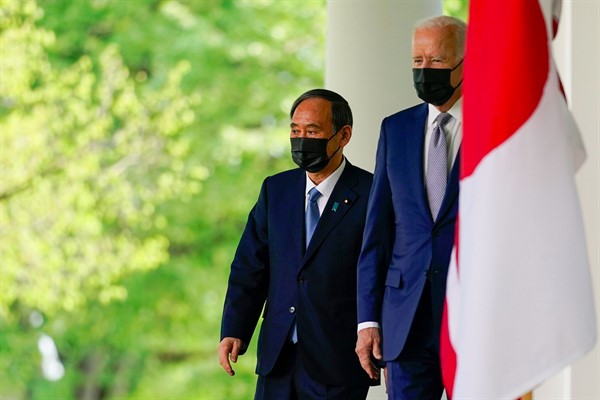Last Friday’s summit in Washington between President Joe Biden and Japanese Prime Minister Suga Yoshihide was one of the most closely watched diplomatic events of the year, for good reason. It was Biden’s first in-person meeting with a foreign leader since taking office, having conducted most of his engagements virtually due to the COVID-19 pandemic. “Our commitment to meet in person is indicative of the importance, the value we both place on this relationship,” Biden said at a joint press conference with Suga at the White House.
For both leaders, it was a valuable opportunity to restore a sense of stability to the alliance after four years of tumult under former President Donald Trump. Biden’s advisers also emphasized the summit’s connection to the other big news of the week: The announcement that American troops would withdraw from Afghanistan by September. A senior administration official, briefing reporters ahead of Suga’s visit on condition of anonymity under rules set by the White House, said that one of the reasons for the drawdown in Afghanistan was to “free up the time and attention and resources from our senior leadership and our military to focus on what we believe are the fundamental challenges of the 21st century. And they lie, fundamentally, in the Indo-Pacific.”
The U.S. is not the only Western country refocusing its attention eastward. Washington’s allies in Europe are devoting more military and diplomatic resources to the Indo-Pacific, with Japan as the anchor of these efforts. The United Kingdom’s Integrated Review of Security, Defense, Development and Foreign Policy, released last month, outlines plans for an “Indo-Pacific tilt” and names Japan as “one of our closest strategic partners, including on security.” When the British navy dispatches its new aircraft carrier, the HMS Queen Elizabeth, on a maiden voyage to the region next month, it plans to conduct joint exercises with Japanese maritime forces.

